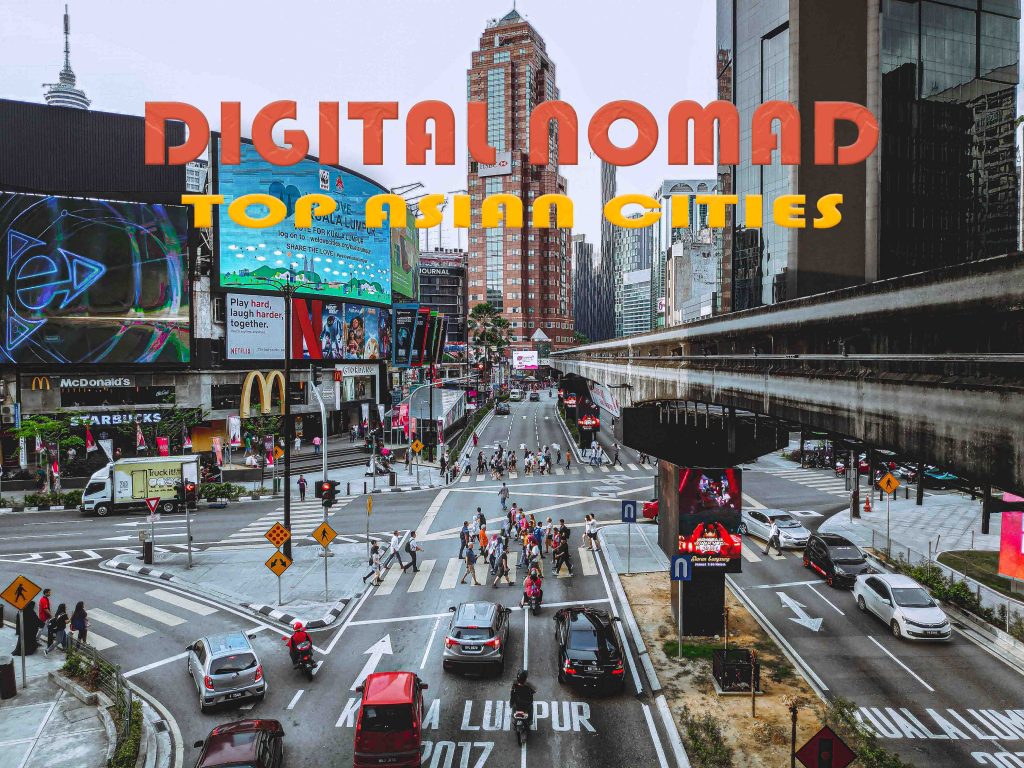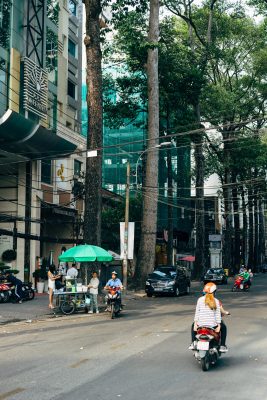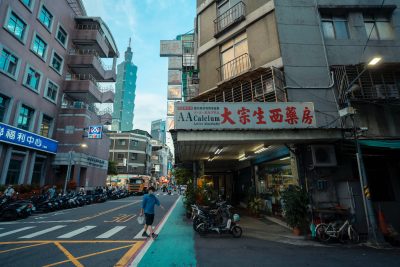
As the world becomes more interconnected, an increasing number of professionals are embracing the digital nomad lifestyle, using technology to work remotely while exploring different parts of the globe. Asia has emerged as a favored destination for digital nomads, offering a combination of affordable living costs, vibrant cultures, and a thriving digital infrastructure.
- Bali, Indonesia:
Bali has become synonymous with digital nomadism, attracting professionals in search of laid-back lifestyle and stunning natural surroundings. With a vast selection of coworking spaces, high-speed internet connectivity, and a community of like-minded individuals, Bali offers a perfect blend of work and leisure. Ubud, in particular, is known for its tranquil environment, creative vibes, and excellent value for money. Balinese culture, delicious cuisine, and the opportunity for adventure make Bali an ideal destination for digital nomads


- Chiang Mai, Thailand:
Chiang Mai has been a hub for digital nomads in Asia for many years, thanks to its affordability, favorable climate, and a vibrant expat community. The city boasts numerous coworking spaces, reliable Wi-Fi, and a plethora of cafes that cater to remote workers. Chiang Mai also offers a low cost of living, with plenty of affordable housing options and a thriving food scene. The city’s picturesque landscapes, opportunities for temple visits, and proximity to nature make it a popular choice among digital nomads


- Ho Chi Minh City, Vietnam:
Ho Chi Minh City, also known as Saigon, has witnessed rapid growth as a digital nomad hotspot in recent years. It provides an intriguing mix of history, culture, and economic development. The city offers a dynamic coworking scene, excellent internet connectivity, and a thriving startup culture. Although the traffic might be chaotic, Ho Chi Minh City is known for its affordable luxurious living and world-class street food. The city’s energy, fascinating history, and bustling markets offer an exciting backdrop for remote work


- Taipei, Taiwan:
Taipei, the capital city of Taiwan, has gained popularity among digital nomads for its high standard of living, robust infrastructure, and strong focus on innovation and technology. With an efficient public transport system, modern coworking spaces, and reliable internet connectivity, Taipei provides the ideal environment for remote work. Additionally, the city’s diverse culinary scene, night markets, and vibrant cultural experiences add to its appeal. Taiwan’s advanced healthcare system and safety rankings further enhance its appeal for those seeking a stable base for remote work


- Kuala Lumpur, Malaysia:
Kuala Lumpur, the bustling capital of Malaysia, combines affordability, modern infrastructure, and a dynamic cosmopolitan atmosphere. The city offers excellent connectivity, numerous coworking spaces, and a comprehensive public transportation network. Digital nomads will appreciate Kuala Lumpur’s diverse food options, vibrant nightlife, and modern shopping centers. Malaysia’s tropical climate and nearby natural wonders, such as the Cameron Highlands, further add to the appeal of this Southeast Asian destination


- Tokyo, Japan:
While Tokyo may have a reputation as an expensive city, it provides digital nomads access to a highly developed technological ecosystem. The city boasts lightning-fast internet, cutting-edge coworking spaces, and a commitment to innovation. Tokyo’s efficient public transportation system, world-class cuisine, and vibrant city life create an unparalleled blend of work and cultural experiences. However, it is essential to consider the higher cost of living in Tokyo when planning a stay as a digital nomad


- Singapore:
As Asia’s leading financial and technological hub, Singapore offers an ideal milieu for digital nomads looking for efficiency and stability. The city-state possesses excellent digital infrastructure, wide-ranging coworking spaces, and a strong focus on innovation. Singapore’s efficient transport, spotless streets, and diverse culinary scene contribute to a highly attractive living environment. However, it is worth noting that Singapore’s cost of living is higher than in other Asian cities, which may require careful budgeting


Digital nomads should take several key considerations into account when choosing a destination:
Cost of Living:
Budgeting is crucial for digital nomads, as it helps determine the sustainability of their lifestyle. Consider the cost of housing, food, transportation, healthcare, and other expenses in the chosen location.
Internet Connectivity:
Reliable and fast internet access is essential for remote work. Before selecting a destination, research the quality of internet service providers and the availability of co-working spaces or cafes with reliable Wi-Fi.
Visa Requirements:
Different countries have varying visa regulations and limitations for remote workers. Ensure that you understand the visa requirements specific to the destination and plan your stay accordingly.
Time Zones:
If collaborating with teams or clients in a specific time zone, it is essential to choose a location that aligns with their working hours. Consider how the time difference might impact communication and collaboration.
Safety and Security:
Prioritize safety and security when selecting a location. Research the country’s political stability, crime rates, healthcare infrastructure, and emergency services to ensure a safe and secure environment.
Access to Amenities:
Consider the availability and proximity of amenities such as coworking spaces, cafes, gyms, medical facilities, and grocery stores in the chosen destination.
Cultural Compatibility:
Embrace the local culture, customs, and language of your destination. Understanding cultural nuances can help create meaningful connections and ease integration into the local community.
Quality of Life:
Consider lifestyle preferences such as climate, outdoor activities, cultural experiences, nightlife, and cuisine. These factors contribute to the overall quality of life and personal satisfaction.
Community and Networking:
Seek destinations with a thriving community of digital nomads or expats. Join online forums, attend meetups, or join coworking spaces to connect with like-minded individuals and expand your professional network.
Long-Term Viability:
While some destinations offer short-term appeal, consider the long-term viability of your chosen location. Evaluate economic stability, opportunities for personal and professional growth, and the availability of necessary resources for sustained remote work.
By evaluating these key considerations, digital nomads can make informed decisions about the ideal Asian destination that aligns with their work lifestyle and personal preferences. It is essential to strike a balance between cost, convenience, safety, and cultural experiences to ensure a fulfilling and productive digital nomad experience.
So grab your suitcase, your camera and your laptop, and let’s go.
